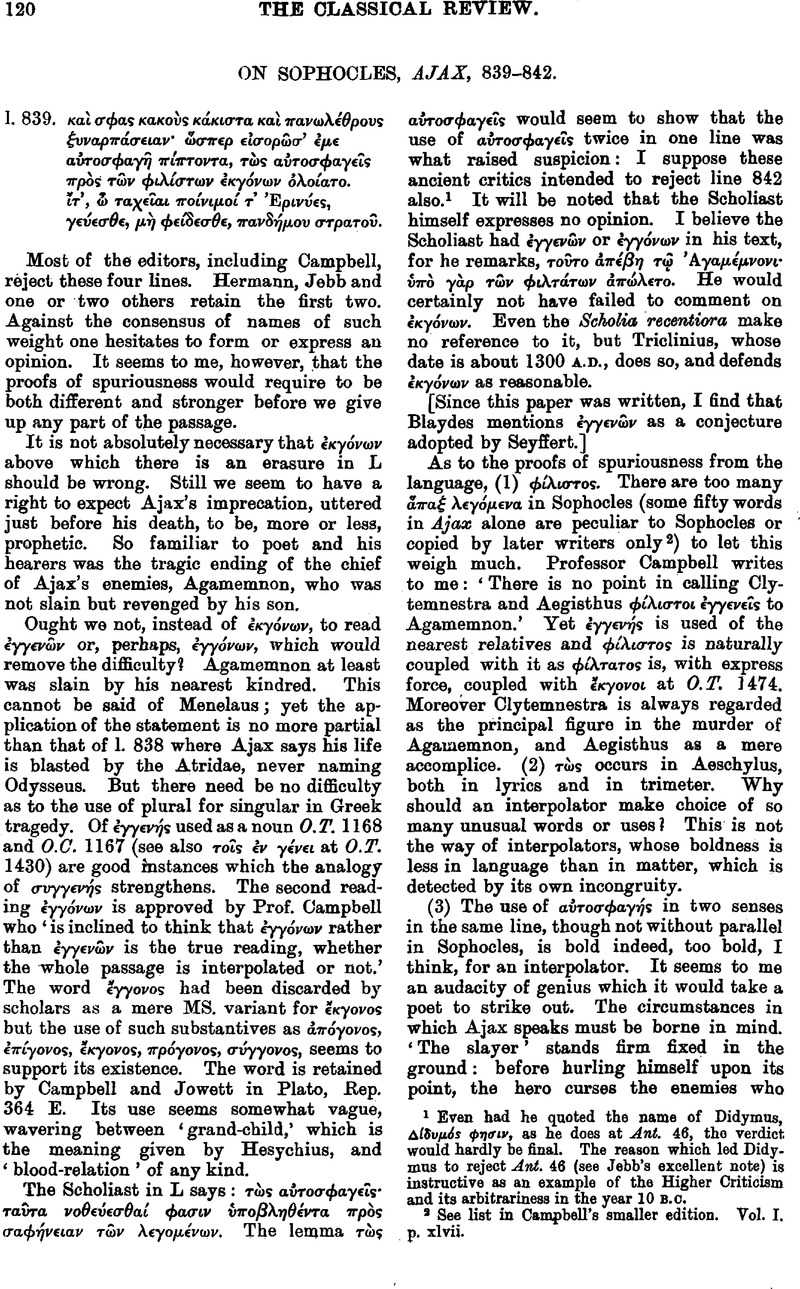No CrossRef data available.
Article contents
On Sophocles, Ajax, 839–842
Published online by Cambridge University Press: 27 October 2009
Abstract

- Type
- Review Article
- Information
- Copyright
- Copyright © The Classical Association 1900
References
page 120 note 1 Even had he quoted the name of Didymus, ![]() , as he does at Ant. 46, the verdict would hardly be final. The reason which led Didymus to reject Ant. 46 (see Jebb's excellent note) is instructive as art example of the Higher Criticism and its arbitrariness in the year 10 B.C.
, as he does at Ant. 46, the verdict would hardly be final. The reason which led Didymus to reject Ant. 46 (see Jebb's excellent note) is instructive as art example of the Higher Criticism and its arbitrariness in the year 10 B.C.
page 120 note 2 See list in Campbell's smaller edition. Vol. I. p. xlvii.
page 121 note 1 We may compare Ant. 145, ![]() , where
, where ![]() stands for ⋯λλ⋯λοιν. The tragic poets had no need to strain the force of words formed with αὐτ⋯ς for lack of ordinary compounds bearing this meaning: cf. Aesch. Theb.
stands for ⋯λλ⋯λοιν. The tragic poets had no need to strain the force of words formed with αὐτ⋯ς for lack of ordinary compounds bearing this meaning: cf. Aesch. Theb. ![]() . The reciprocal force of
. The reciprocal force of ![]() at 1. 56 is further emphasized by the compound ⋯παλλ⋯λοιν where ⋯πι- intensifies the sense of mutuality.
at 1. 56 is further emphasized by the compound ⋯παλλ⋯λοιν where ⋯πι- intensifies the sense of mutuality.
page 121 note 2 Two excellent instances are at Republic, p. 557 c, ![]() , and 497 B, .
, and 497 B, .


